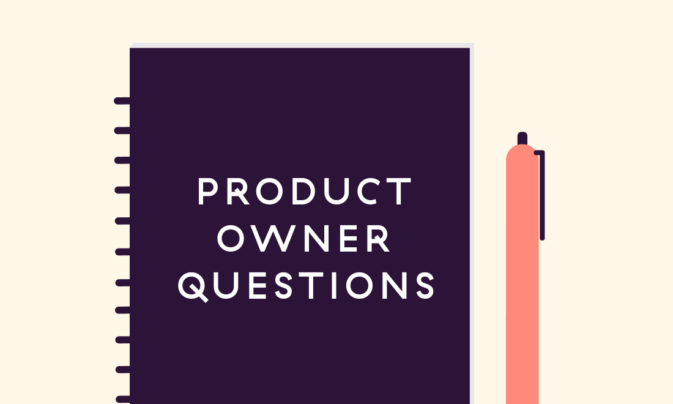When it comes to using personality tests, there are two schools of thought. Either you’re in the camp who believes they’re a waste of time, or you think they’re a great way to evaluate soft skills, cultural fit, and work style.
The right answer is in the middle.
When done right, a pre-employment personality test can identify people with strong interpersonal skills.
But personality tests also work best alongside other tactics for evaluating the candidate because personality tests alone can’t predict job performance or fully describe the person’s temperament.
Let’s talk about when and how you can use personality tests for hiring.
TL;DR – Key Takeaways
A personality test evaluates and measures different personality attributes such as character, behavior, emotions, and thoughts. As a pre-employment tool, a personality assessment can help identify candidates with a positive demeanor.
Recruiters turn to personality assessments to evaluate the candidate’s interpersonal skills, values, and working style. Personality test results can also tell you about the candidate’s motivation, resilience levels, and preferred collaboration styles.
Despite claims from testing companies, personality tests don’t predict job performance rates. On the contrary, using these tests for hiring can perpetuate bias and unfairly disqualify certain candidates.
Because personality tests draw inconclusive results and are easy to fake, it’s best to use them in combination with soft skills assessments, technical skills assessments, cognitive ability tests, and behavioral interviewing.
What’s the purpose of personality tests in hiring?
Personality tests help evaluate the candidate’s character traits to better understand the person’s values, motivation, and common behaviors.
By introducing a quick personality test into your recruitment process, you can learn whether the candidate is more assertive or agreeable, a bubbly life of the party, or a quieter, analytical thinker. Knowing these personality traits can help understand how they’d slot into the workplace.
Personality tests go way back to the beginning of the 20th century. First used to assess the soldiers’ mental resilience and the inexplicable attraction between a beloved daughter and (apparently not well-suited) fiancé, personality tests became a major part of human resource management by the 1980s.
Today, over 2,000 types of personality tests for hiring (and at-home psychoanalysis) are out in the wild — and companies use personality assessments both for hiring and career development.
A personality assessment can quickly classify candidates into different “types”. For example, the Myers-Briggs Type Indicator offers 16 personality types, sitting on a spectrum: extroverted vs. introverted, intuitive vs. sensing, thinking vs. feeling, and judging vs. perceiving. Respectively, each type has some unique characteristics, which can make them look better suited for a job.

For example, an ISFP personality type (The Artist), according to the Myers Briggs Type Indicator, should thrive in creative roles, while an ESFJ personality type (The Caregiver) should be a great fit for customer-facing or hospitality roles.
Other personality tests follow the same logic: The Caliper Profile measures candidates’ profiles based on characteristics and motivations they see as a predictive index for job performance. The DISC Behavior Inventory categorizes people by temperament.
So many companies saw personality tests as an opportunity to find people with the right personalities and match those to the ideal role.
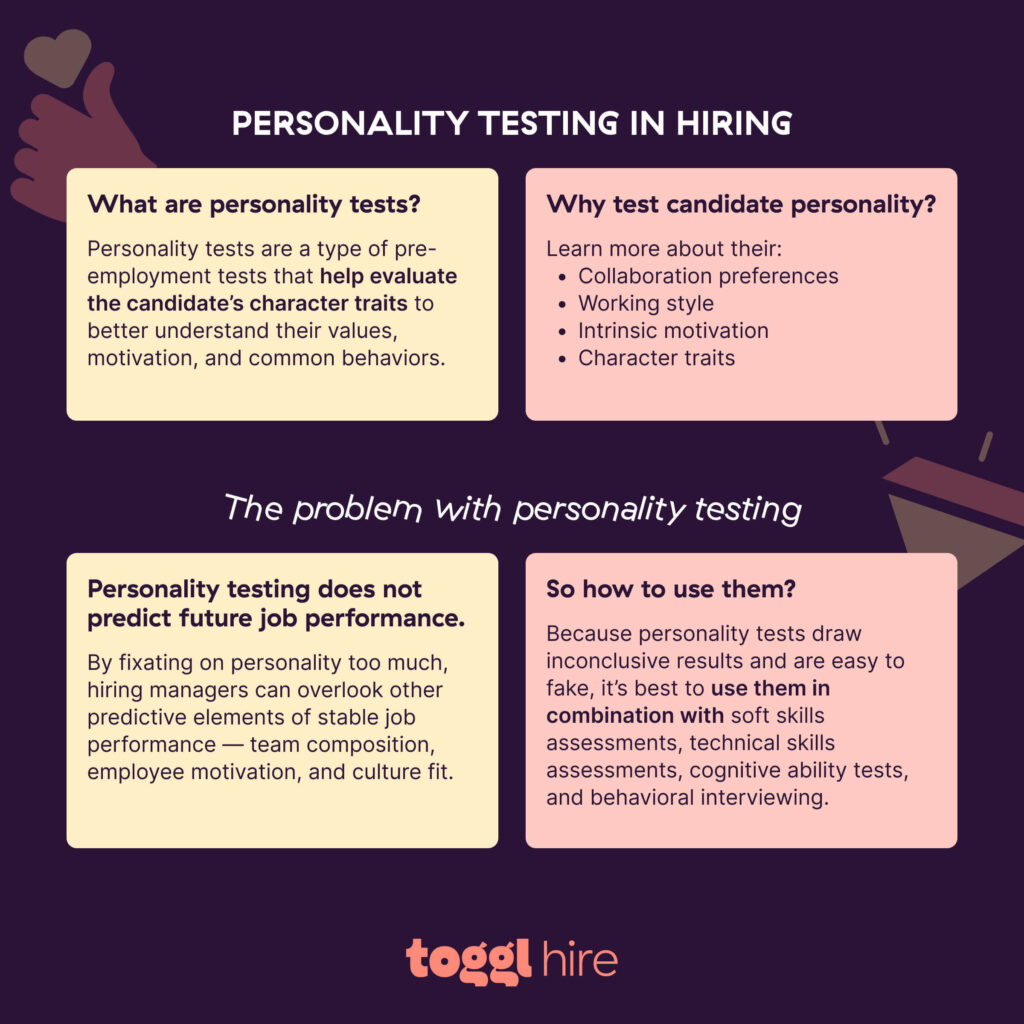
The problem? By fixating on personality too much, hiring managers can overlook other predictive elements of stable job performance — team composition, employee motivation, and culture fit. So many companies still end up making poor hiring decisions.
Personality tests hinge on the test takers’ ability to self-characterize. But how we see ourselves isn’t always how others would rate our behavior. For example, someone may think of themselves as a “strong communicator”, but in reality, they are only good at talking, not active listening.
Pros and cons of personality tests for hiring
Personality tests can provide extra insights into the candidate’s interpersonal skills, leadership style, and cultural proximity to the company. However, using a personality assessment as the tell-all metric can also result in poor candidate placements.
Advantages of using personality tests for hiring
When done right, personality tests can help you learn more about the candidate’s values, communication style, management preferences, and affinity towards certain work styles.
#1 – Test Soft Skills
Soft (or power) skills like communication, problem-solving, critical thinking, and creativity are incredibly important in the workplace. But not all candidates do well in this department.
According to McKinsey, recruiters struggle to find candidates with strong:
Critical thinking, innovation, creativity, and problem-solving skills (37%)
Ability to deal with complexity and ambiguity (32%)
Communication skills (31%)
Personality tests can help bring these personal traits to light through practical assessments. Toggl problem-solving skills test, for example, helps evaluate the candidate’s ability to perceive information, use logical reasoning, analyze data, and conduct analysis. You can select questions from an expert-made database, plus add custom ones to assess the candidates’ approach to decision-making.
#2 – Evaluate Working Styles
Human resource professionals also want to know if a candidate’s style of working matches the company’s culture. The last thing a business wants is to make a bad hire who can’t slot into the way of working and leaves in the first couple of months. Instead, recruiters use personality tests to ensure candidates walk into an environment and way of working that drives productivity and long-term job satisfaction.
For example, a communication skills test can help evaluate how the new Product Manager may give feedback remotely to the team or handle stress before a critical feature release.

#3 – Ensure Alignment With Company Culture
Perhaps the biggest reason recruiters use a personality assessment is to understand how a candidate could fit into the company culture. A pre-employment personality test can show whether a candidate will slot into the work environment or, even better, if they’ll positively add to the existing culture.
When hiring for culture fit without any quantifiable data, hiring managers risk unconsciously selecting the same types of candidate profiles repeatedly instead of strategically adding more diversity to the team.
#4 – Identify Similar Values
Every human personality is unique. We feel strongly for and against different causes, and these beliefs often guide our actions. New employees who share the company’s values and mission are more likely to have high job performance in the long term.
Per Gartner survey, 82% of employees want their employers to see them as individuals. Personality assessments help better understand what drives, pleases, and frustrates a candidate in the work environment.

What’s the problem with using personality tests for hiring?
Personality tests attracted strong criticism for lacking reliability, validity, and fairness when it comes to hiring decisions.
Popular types of personality tests like the Big Five Personality Test, The Hogan Personality Inventory (HPI), or the Myers Briggs Type Indicator can help collect data on personality traits, but they don’t provide evidence-based data about the person’s skills or predict job success rate.
By over-relying on pre-employment personality assessments, employers risk hiring people who can perform well situationally but do not necessarily have well-rounded interpersonal skills.
Here are four reasons to treat personality test results with a grain of salt.
#1 – They’re Easy to Fake
Personality tests have no right or wrong answer. In many cases, this results in job candidates answering questions as they think the recruiter wants them to instead of answering them honestly.
To assess the efficacy of personality tests for hiring, researchers created a mock customer support position. Then, a test group was asked to take a popular personality test as part of the hiring process. Most test takers scored quite high.
But when the group was told that this was a fake job and then asked to re-take the test honestly this time, the test taker’s score were much less positive.
In other words, job applicants often self-redact negative qualities to look better on the test when they want to impress HR professionals. So when companies use personality assessment results alone, they risk falling for “the best version” of someone’s personality, but not necessarily the “true version”.
Unfortunately, there’s no way to actually avoid this in pre-employment screening. Recruiters have to take personality test results at face value and accept the inaccuracy.
#2 – They’re Inconclusive
Personality tests are based on correlations. They try to describe a persona through a number of character traits — openness, extraversion, and emotional stability, among other factors. Although handy to know, such attributes don’t predict the person’s situational behavior. For example, a person with a high emotional stability score may still harshly reply to an angry customer.
Most personality tests for hiring also have questionable efficacy. Studies have shown the Myers-Briggs test is not a valid predictor for the candidate’s success in the role. Half of the people who take it twice get different results each time.
Pre-employment personality tests are helpful for comparing how a candidate ranks against others for a particular personality trait. But such tests aren’t foolproof in weeding negative qualities or delivering conclusive insights on a candidate’s personality.
#3 – They Can Lead to Type-Casting
Using personality tests can lead to biases in hiring, prompting you to prioritize people with “favorable” personalities. After all, it’s easy to picture an agreeable Type A extravert in a sales role. But slightly more narcissistic and neurotic characters can also be captivating presenters (think Steve Jobs).
Personality testing also discards the impact of cognitive buffering on our actions, aka our ability to use intelligence to control or modify certain aspects of our personality. That’s why not all naturally dominant people would seek leadership roles or undermine their supervisor. But people with poor time management skills, for example, will struggle to manage both their personal and professional calendars.
By relying on test scores alone in the recruitment process, you can inadvertently choose candidates with a sweet set of traits but less-than-stellar skills.
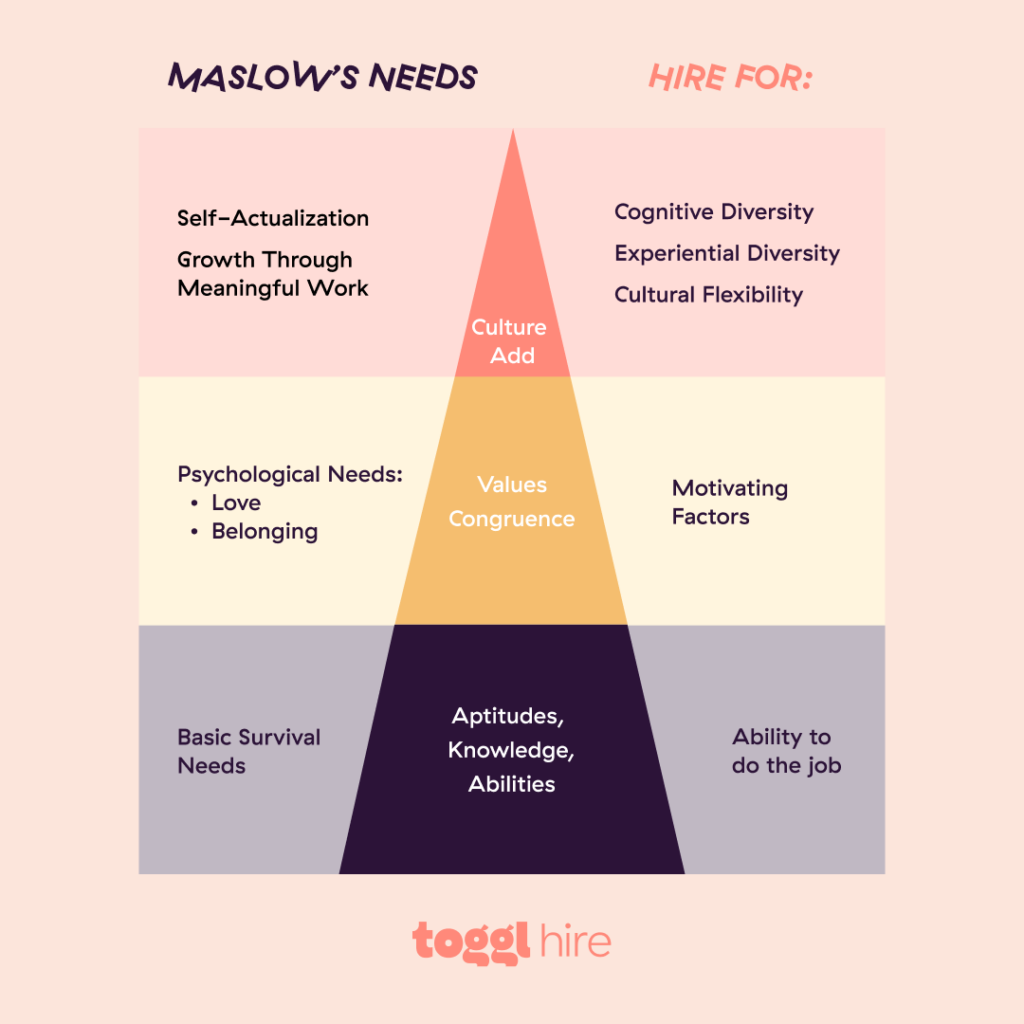
#4 – They Can Be Biased
The personality testing industry emerged in the Western world. Because of that, they don’t account for cultural differences in communication and self-presentation.
For example, the Big Five Personality Test was designed for “Western Educated Industrialized Rich Developed.” (WEIRD) countries, but the assessment proved to be an unreliable measure in other countries, especially when administered in a local language.
Many personality tests are designed to analyze the cultural and circumstantial values of the predominantly white middle class. Minority qualified candidates raised in a different socio-economic environment perform worse on such tests because of how the questions are framed.
In other words, personality tests can further perpetuate unconscious biases and hinder diversity.
What can personality tests tell you about candidates?
While personality tests are not a reliable proxy of employee performance, they can provide valuable insight into the candidate’s personality, strengths, and weaknesses.
Instead of pigeonholing candidates based on broad personality types, focus on measuring the following factors instead.
Intrinsic motivation
Intrinsic motivation is our tendency to do things that please us without seeking reward. It also impacts our job satisfaction. In fact, intrinsic motivation accounts for 45% of the positive changes in employee engagement, commitment to an employer, and proactiveness at work.
Different personalities have different drivers for intrinsic motivation: natural affinity for being in the spotlight, high self-esteem, or pride from doing good work. Soft skills assessments with questions about the candidate’s preference for feedback giving, levels of personal autonomy, and overall emotional intelligence can help provide a good baseline of their intrinsic drivers.
Preference for collaboration
Some personality types are naturally more autonomous. Others thrive during group discussions, love building new relationships, and doing collaborative work. Likewise, some personalities do better in high-paced (or even slightly chaotic) work environments due to higher stress tolerance and better adaptability. While others may thrive in more structured roles with clear-cut expectations and roaster of tasks.
A pre-employment assessment such as a teamwork skills test can help HR professionals assess how the candidate would behave in different group settings to better understand their level of interpersonal and conflict-management skills.
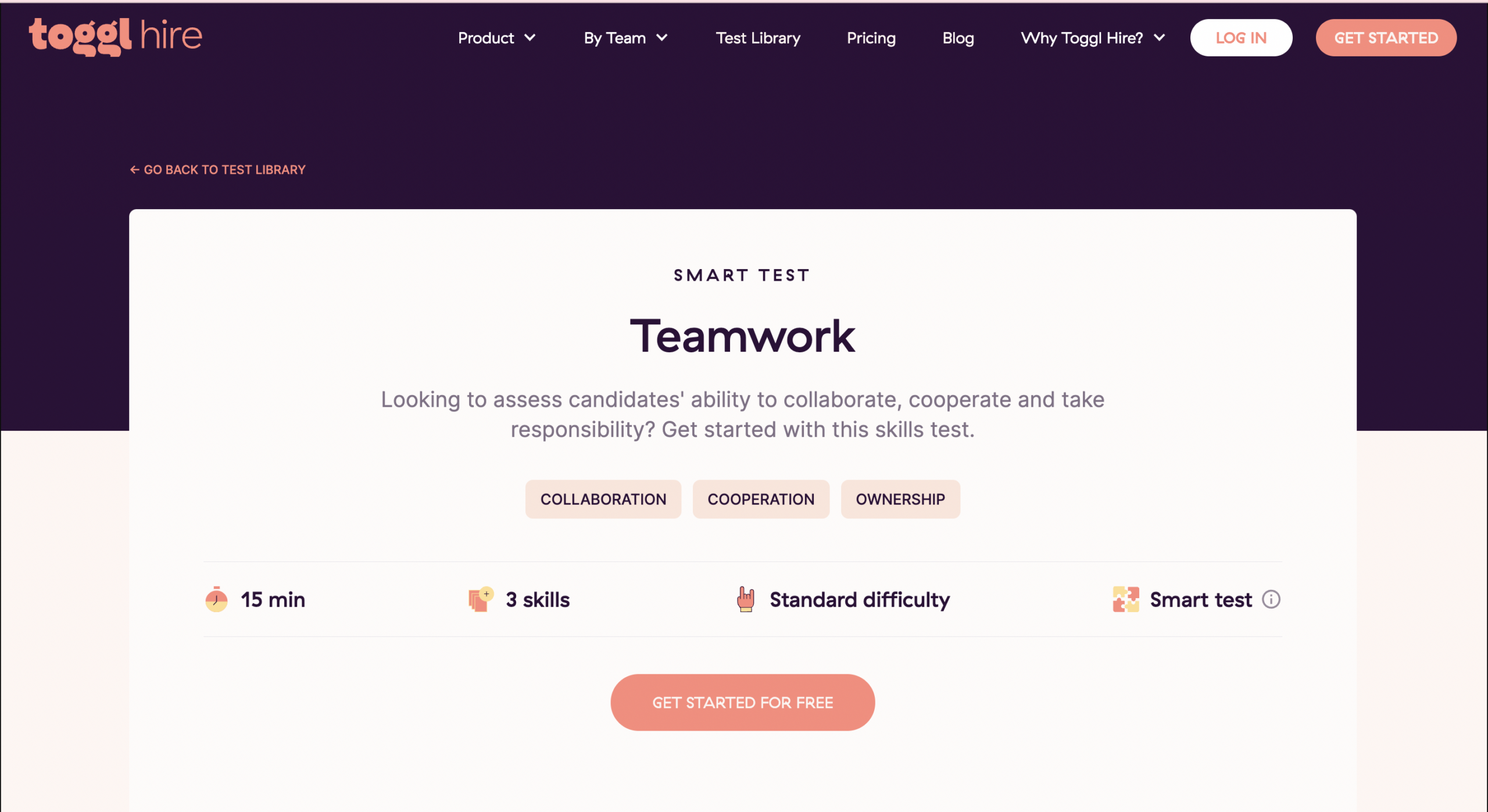
Resilience
Resilience is our innate ability to bounce back from mentally taxing events. People with high resilience are quick to adapt to changes, can think through their options before taking action, and don’t drop the ball when work gets hectic.
Personality tests like the Brief Resilience Scale (BRS) and The Scale of Protective Factors (SPF) help evaluate this trait.
4 alternatives to personality testing for screening candidates
A personality test is just one element of the hiring process. To get more objective results, combine (or replace) such tests with a more consistent and reliable tool such as a skills test, behavioral interview, a video introduction, or a work simulation day.
#1 – Design an appropriate skills test for the role
Behind every successful hire is an HR professional who did a stellar job task analysis.
Job task analysis helps nail the primary responsibilities and tasks for a specific role, plus line up essential soft and hard skills a good candidate must have.
Mention both in your job description, alongside information about the company’s culture and working practices. Doing so helps set proper expectations at both ends.
Use the identified job requirements to create a list of questions to test the candidate’s skills. For example, good soft skills to evaluate for a marketing role include communication, collaboration, creativity, and teamwork.
Using Toogl’s test question library, you can create a role-specific custom assessment in less than 15 minutes.
Include a combination of multiple-choice, open-ended, and assignment-style questions to quickly and quantitatively evaluate each candidate.
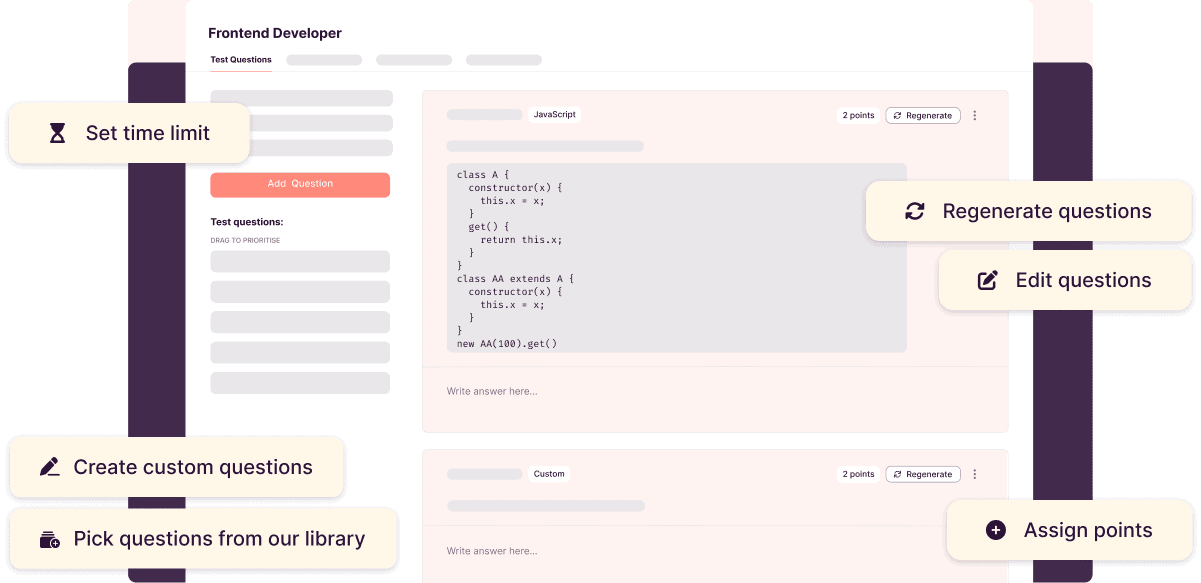
Using skills tests as a recruitment tool gives you more insight into the person’s performance ability than personality testing does.
#2 – Schedule a behavioral interview
People with authority issues can still wait in a queue without causing a scene. Often, the best predictor of future behavior is past behavior.
Factors like cognitive abilities, growth mindset, and motivation are stronger predictors of job performance. And you can effectively evaluate these during a behavioral interview.
As part of the interview process, ask a couple of personality questions such as:
- Please name one or several traits you’d change about yourself.
- How would you describe your work ethic?
- What qualities do you value the most in other people and why?
- How easily can you build a new relationship with a colleague?
- How do you usually approach giving negative feedback to coworkers?
- Tell about the time you had to deal with an unreasonable client demand.
The above questions can give you a good general sense of the candidate’s positive and negative personality traits.
You should further vet candidates for compatibility during a peer or team interview. At this point, prepare a deeper set of behavioral interview questions to better understand the candidate’s thinking process, typical behaviors, and possible weaknesses.
Example behavioral interview questions to ask:
- Tell me about your biggest personal or professional setback. How did you bounce back from it?
- Imagine that you have two tasks with conflicting deadlines from two stakeholders. How would you deal with prioritizing them?
- Can you describe how you would deal with a colleague who consistently changes the project scope, causing delays and rework?
- What is your preferred management style? What do others need to know about your communication preferences and work style?
A test measures how we think about ourselves. Behavioral interview questions, in turn, prompt the candidate to talk about certain behaviors and how these were perceived by others.
#3 – Use an async video intro
Video intros are a great way to pre-screen multiple candidates early in the hiring process. Async video interviews reduce both parties’ time commitment while still assessing the candidate’s character.
Instead of doing a personality test, ask the person to record a personal introductory video. Give them several prompts to talk about their general life attitude or more specific personality traits.
You can mix some fun ice-breaker questions like “Which fictional character would you be?” with more serious ones like “What makes you think you’re a good cultural fit with us?” or “How do you stay motivated to maintain high performance each day?”.
With Toggl, you can easily embed video intros into any stage of the recruitment process. Set a custom time limit for each Q to keep the conversation productive. Invite multiple candidates through a landing page and review submissions from our platform.
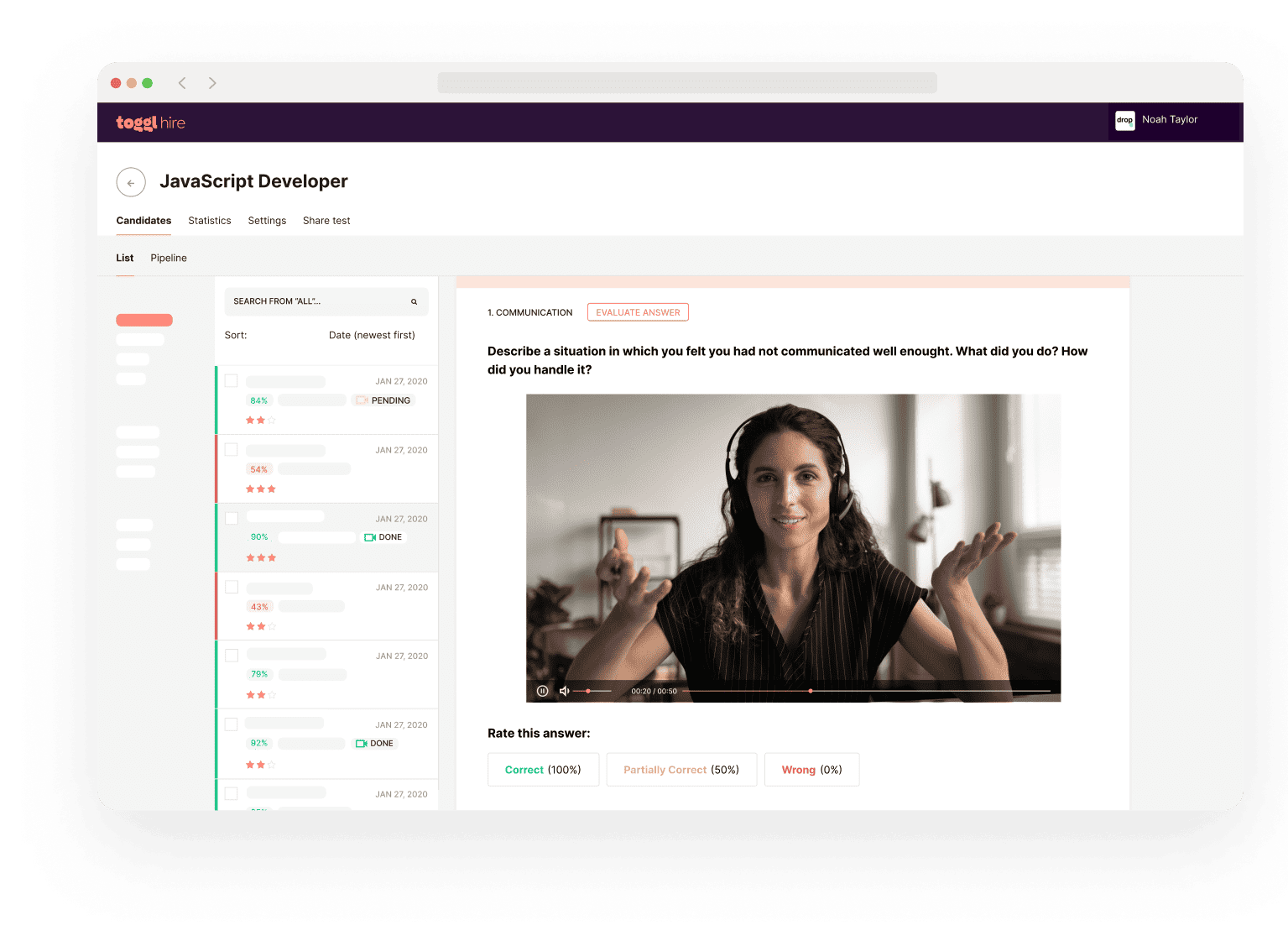
#4 – Try a work simulation day
Want a more unconventional but really impactful pre-employment assessment?
Try doing a job simulation day with the shortlisted candidates. Job simulations are designed to offer as close to real-world experience for a day (or several). The test day can combine a set of skills assessments or homework assignments for testing soft and hard skills with live job simulations like role-playing or group work with your team.
The goal: test the candidate’s abilities in the field and give them an immersive introduction to the role.
Companies use work simulation days to:
- Validate the candidate’s professional abilities
- Reveal easy-to-miss candidates’ personalities
- Understand how well they will perform
- Bring an extra layer of fairness and objectivity
At Toggl, we’ve been combining work simulation days with other tests for several years. It’s our cornerstone for ensuring a strong professional and cultural fit and high employee retention, even though we’re fully remote.
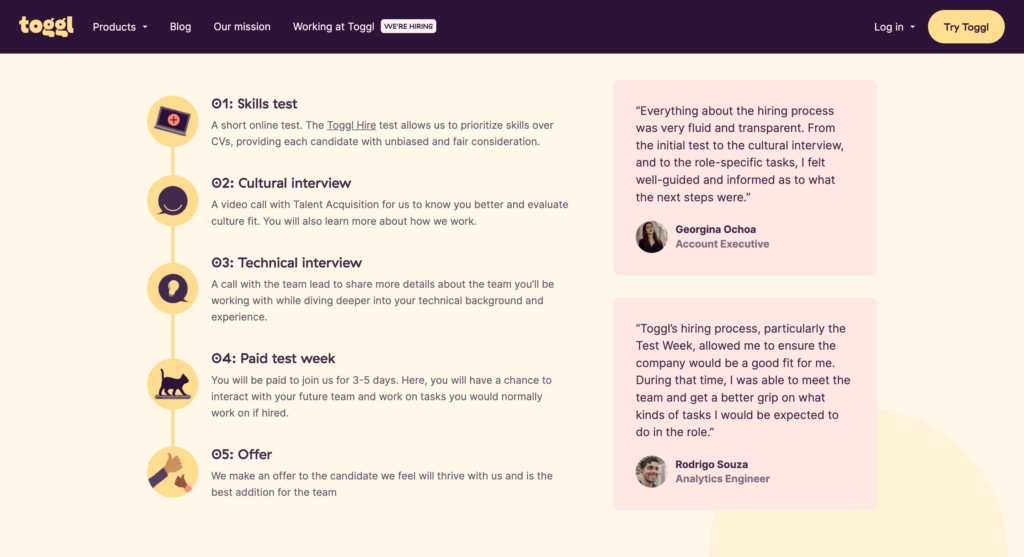
Measure your candidates’ soft skills with Toggl Hire
Bring objectivity into personality assessments by evaluating skills instead of character traits.
With our pre-built assessment templates, you can test for a wide range of soft skills and personality traits to find your next best fire.
Get started for free!
Elena is a freelance writer, producing journalist-style content that doesn’t leave the reader asking “so what." From the future of work to the latest technology trends, she loves exploring new subjects to produce compelling and culturally relevant narratives for brands. In her corporate life, Elena successfully managed remote freelance teams and coached junior marketers.








